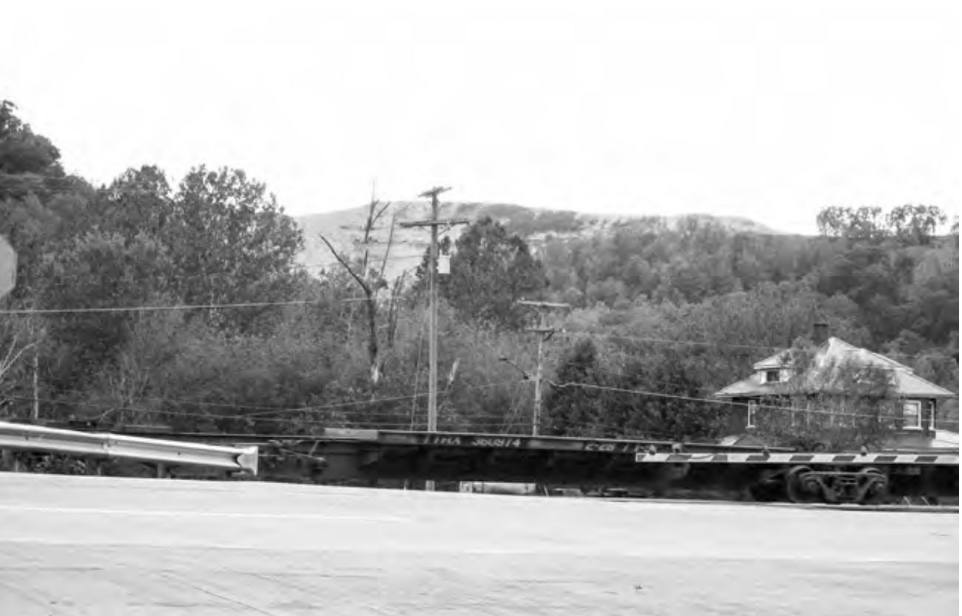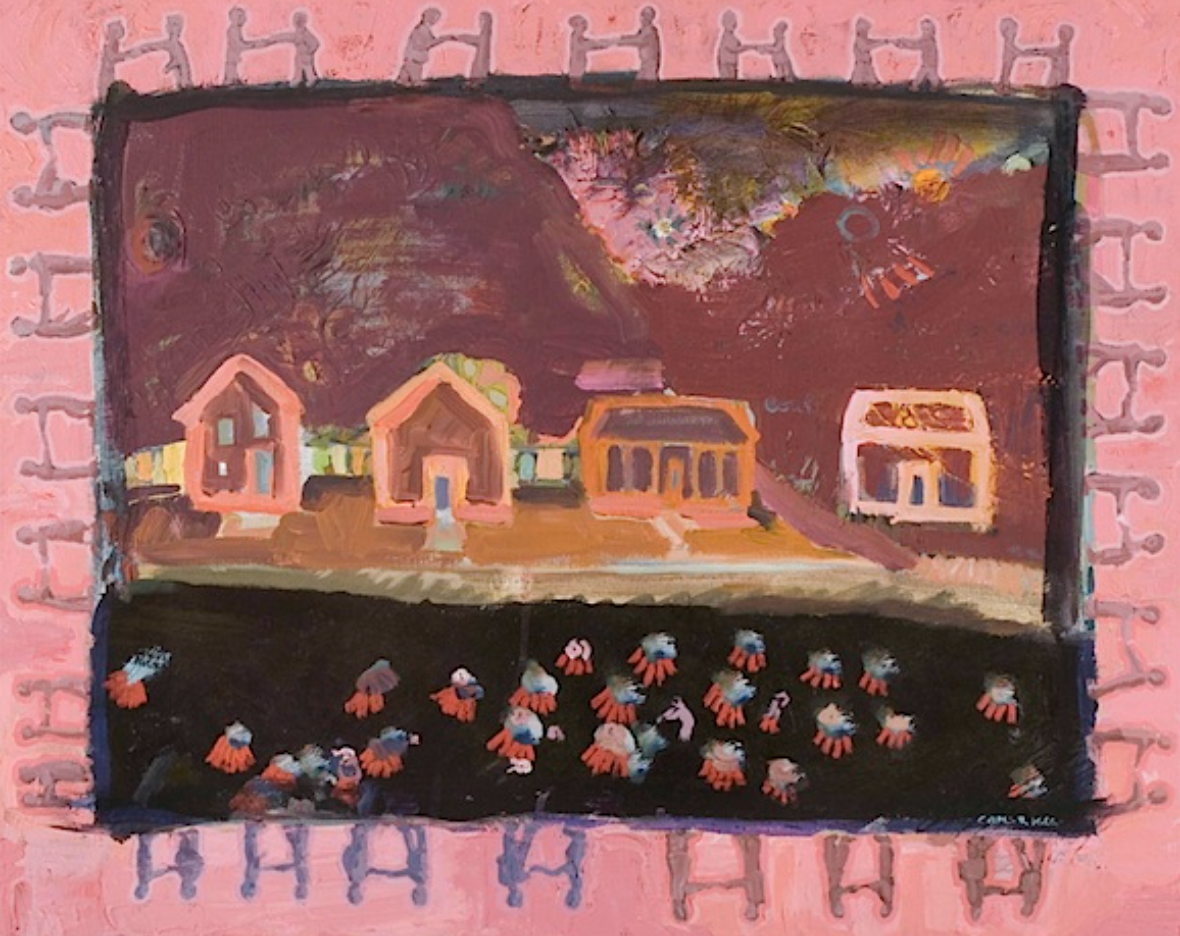Eve, American
Figure 9.30 (Eve’s Photo of an Empty Coal Train)
This photo ties together MTR’s impact on the economy, nature, and the day-to-day lives of local people. The photo shows a coal train going past with no coal on it while in the distance is a bare mountain that has been subjected to MTR. To the right side is a home, localizing the scene. The empty train gives a sense of the economic devastation of the region as people have lost jobs and have been forced to leave the region as MTR has become the dominant form of coal mining. While not shown, the coal extracted from MTR is now transported by trucks on local roads, a dangerous practice that has caused many accidents, something deeply felt in this local context. Presented by a local woman at a community meeting, this photo asks other local women to critically consider the tolls of MTR on their safety, their community, and the natural world. Label by Caitlin Blomo




